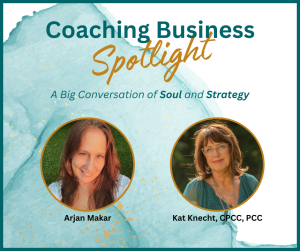I had a big wake-up call soon after marrying my first husband.
During our dating and cohabitation, I felt that we were equals when it came to domestic chores. He was what we called a “liberated man” back then, a regular hippie who believed in changing the system.
The wake-up call came when I noticed a radical change in him once we were married. Suddenly, all the domestic chores seemed to fall on me.
When I visited his home in Northern Ireland around that time, it became clear to me where this behavior originated. Besides his mother and aunt, there was also a maid, along with stories of the nanny who had helped raise him and his three siblings.
I noticed that the women picked up his clothes from the floor, straightened up his room each morning, cooked his meals, and did all the cleaning. This was what he expected from me.
Over the years, we worked through some of this, but for the most part, I ended up doing most of the housework and child-rearing. Don’t get me wrong, he worked hard and was a great dad, but I was the one making sure the house was clean and the kids were cared for.
This gave me a perspective on myself as the “neat one” in the family, someone good at cooking, cleaning, and running things.
But I was also resentful, exhausted, and though not overtly angry, I now realize I felt a certain confusion about who I thought I was going to be versus who I had become.
Marriage number two: A big surprise.
After decades of being the “neat one,” I am now the messy one! My second husband not only avoids leaving his clothes lying around, but he’s also so neat that I’ve improved my own habits just to keep up.
He does more than his share of household chores and is much better at cleaning than I ever was. I’ve come to realize that cleaning doesn’t come naturally to me. I love straightening up, designing, and decorating the house.
I enjoy cooking more than I ever imagined, now that it’s no longer a daily obligation.
The observation that led me to write this came when I realized how much I had thrived in this second marriage. As an individual, I’ve grown in my ability to be authentic, vulnerable, and focused on the activities I love most.
My ability to express myself through my work has expanded exponentially. I realized this growth is, in part, due to the environment of my marriage. Together, we’ve designed our life—deciding who does what, how we spend our time and money, and creating a dynamic where we both thrive.
But doing this requires a kind of truth-telling that can be messy and uncomfortable at times.
The lesson I want to share is this: If you’re not feeling like the person you want to be, it could be due to your environment—the people you surround yourself with or the type of home life you’ve created.
A metaphor that came to me while thinking about this was of a fish in a fishbowl. In my first marriage, I was in the wrong fishbowl. I’m not suggesting you have to leave your marriage or make drastic changes, but rather that you should examine what kind of fishbowl you’re living in and consider what changes you can make.
When others are involved, I’ve found that having what I call a “Big Conversation,” where you intentionally decide how you want things to be, is essential.
In coaching, we call this a designed alliance. It can work in any relationship if all parties are willing to be honest and trust that they can maintain their autonomy while also making agreements about what they will and will not do.
For instance, in my first marriage, as soon as I could, I hired a house cleaner. My friend Corinne and I would cook meals together and freeze them for weeks ahead. I taught my kids to have chores and gave them allowances as part of our designed alliance as a family.
These steps helped me stay and be happy in that fishbowl for a long time.
I also let go of some friendships, made new ones, and found communities with people who shared ideas and philosophies that nourished my soul and helped me grow. I redesigned my house to be more spacious and filled with light.
Sometimes, like me, you may need to leave a marriage or a job in order to be your best self.
The biggest lesson I’ve learned is to stop thinking there’s something wrong with me when I can’t blossom the way I want. Instead, I’ve realized the importance of looking at my environment—the way I’ve set up my daily life and work.
I often say that change is an inside job, and I completely stand by that! But sometimes, the internal changes needed to live your best life can be triggered by changes in your outer world.
I encourage you to look at what is not working and, though I don’t recommend taking drastic action, see if there is something you want to change in your life and get the support to take action in the direction of your heart’s desire.
Speaking of hearts desire. On my podcast this week, relationship coach Arjan Makar reveals her own story of heartache and how she moved forward toward fulfillment. She also shares how she supports others to do the same.

 Ep. 27 – Arjan Makar – How Vulnerability Drives Transformation
Ep. 27 – Arjan Makar – How Vulnerability Drives Transformation
In this episode, Kat and relationship coach Arjan Makar explore how personal stories and heartbreak can fuel growth in coaching. Discover how vulnerability, self-awareness, and boundaries help create deeper connections and drive transformation.




